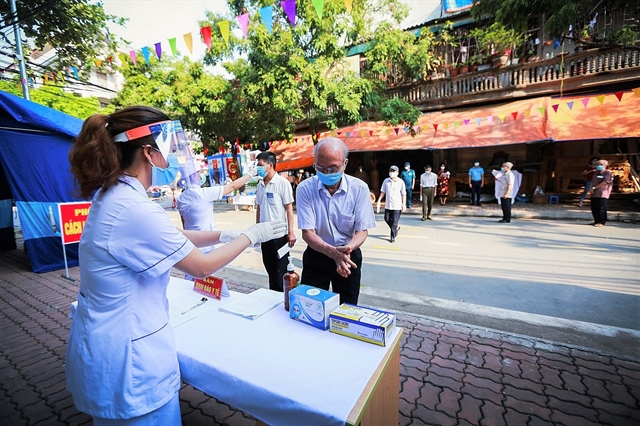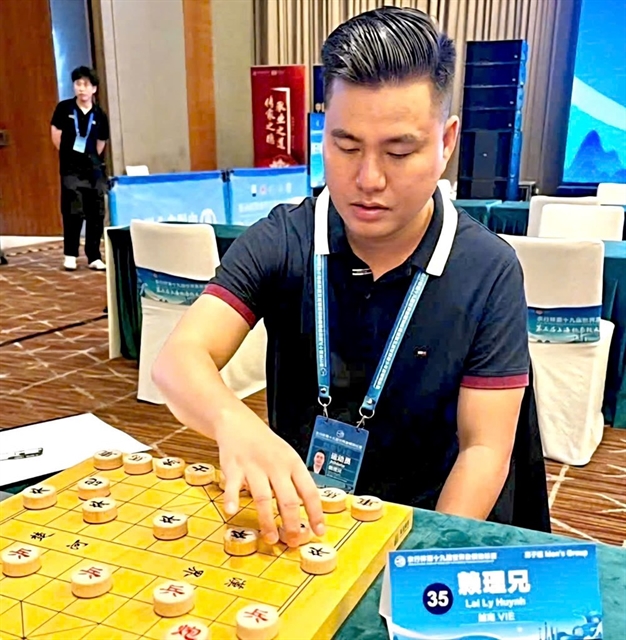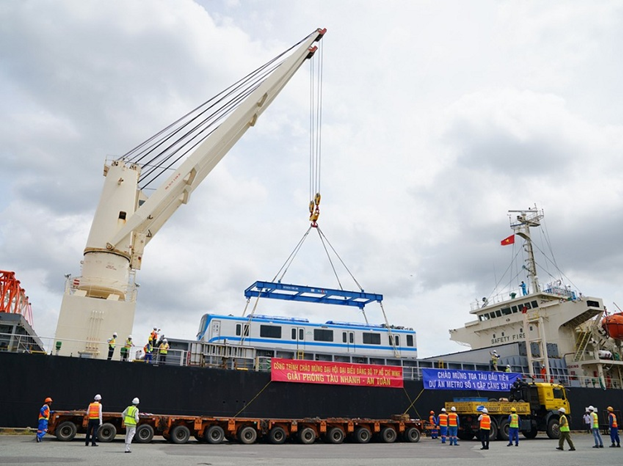 Politics & Law
Politics & Law

Minister of Home Affairs Phạm Thị Thanh Trà spoke to the Vietnam News Agency ahead of the May 23 election of deputies to the 15th National Assembly and People’s Councils for the 2021-26 tenure, on preparations to deal with evolving COVID-19 outbreaks and new regulations to ensure lawful electoral procedures
Minister of Home Affairs Phạm Thị Thanh Trà speaks to the Vietnam News Agency ahead of the May 23 election of deputies to the 15th National Assembly and People’s Councils for the 2021-26 tenure, on preparations to deal with evolving COVID-19 outbreaks and new regulations to ensure lawful electoral procedures
After inspection visits to localities, what are the biggest issues of note ahead of the election?
It should be acknowledged that localities have prepared well for the election, in line with the law and with the schedule. To date, preparations in terms of materials and human resources to serve the election have been completed for the most part.
From now to election day, localities need to stay proactive and closely follow the guiding documents of the National Election Council (NEC), the Prime Minister, and the National Steering Committee for COVID-19 Prevention and Control, and other authorities to ensure political security, social order and safety, timely and effective response to natural disasters and coronavirus outbreaks.
The NEC has provided localities with meticulous, step-by-step instructions to deal with many specific scenarios such as during social distancing orders or conducting voting for people in quarantine.
Still, what concerns me the most is the impact of outbreaks. At localities where community transmission is ongoing, changes are frequent as voters are placed in quarantine facilities, workers in industrial zones won’t go to their factories/plants (some could be voting venues) because of outbreaks, and students have left for their hometowns as schools are shut.
In addition, even the members of local election assisting teams might be subject to changes because they might be placed under quarantine at any time, while training for new members has also faced difficulties with the COVID-19 restrictions.
On the other hand, if localities do not make careful plans for the election day, there might be situations where large crowds of voters congregate at voting sites, so COVID-19 prevention and control at voting sites need to be very rigorous.
To assist the outbreak-hit localities to ensure the success of the election, even on the election day of May 23, the Ministry of Home Affairs will send delegations to inspect polling stations where voters exercise their voting rights.

|
| An election drill in the northern city of Hoà Bình amid the COVID-19 outbreak on May 19, 2021. Voters participating in the drill need to follow all set protocols such as hand washing, wearing masks, keeping a safe distance between each other at the polling station, etc. — VNA/VNS Photo Trọng Đạt |
The ministry’s stance is to go directly to outbreak-hit areas to scrutinise the conducting of the election procedures so that we can learn from the experience and provide timely responses to emerging circumstances.
How do you keep tabs on the fluctuations of voter numbers to ensure their rights and interests, especially now when many students and workers in Hà Nội or HCM City and other urban centres have returned home?
For this election cycle, the Ministry of Home Affairs announced that there are 69,198,594 people eligible to vote across the country.
Due to COVID-19 outbreaks, many localities have shut down non-essential services and schools have gone online, which requires revisions to the posted list of voters and might affect the issuance of voters’ cards in the upcoming election.
The NEC has issued various guiding documents on this issue. Currently, local authorities are reviewing and updating the fluctuations of voter numbers in their jurisdiction on an hourly/daily basis, while at the same time, close co-ordination is needed between localities where voters have registered to cast their votes and their hometown or centralised quarantine facilities to remove the names of people who are no longer present at their registered location and add their names to the new location.
One issue we need to address is the reduction in voters in some constituencies has been so drastic that the number is insufficient – like schools that have been shut for example. So the NEC has instructed localities where this issue occurs to ‘merge’ voting sites, such as merging the Việt Nam National University – where only teachers and staff still come to work – with the residential neighbourhood where the university is, and then the names of students that have returned to their hometown would be crossed out.
However, in my opinion, it is also necessary to be flexible, with procedures that could be simplified and done via text messages or Zalo. Being too rigid at this time would be very unreasonable since the outbreak situation changes quickly.
The municipal and provincial election councils must direct the local election assisting teams to closely work with officials in villages and residential quarters to urgently review the list of voters during the process of handing out voters’ cards in their jurisdiction, and pay more attention to other special-need cases such as ill people, the elderly, the disabled people as well as people under quarantine.
Election assisting teams need to prepare additional voter cards, backup ballots and other necessary security conditions for the voting on election day, to ensure all voters can exercise their right to vote in accordance with the law.
What would the home affairs ministry do if a large portion of local election teams’ members contracted COVID-19 or have to be quarantined?
Other than preparations for the election, we have urged local teams to strictly observe basic measures to prevent COVID-19 and have proper and timely responses to possible outbreaks.
In cases of team members becoming COVID-19 patients or identified as F1 and F2 cases that need to go into quarantine, the local authorities would supplement and replace these incapacitated members.
Centralised quarantine facilities, locked-down areas, or hospitals and medical establishments with a large number of eligible voters could be set up as voting venues and local election teams must work with health workers in these facilities and areas.
The current issue of concern is how to post a full list of voters and voting sites, and all voters receiving their voter cards to exercise their voting rights, especially during outbreaks.
To ensure a safe, convenient and lawful election day, I want localities, from now until election day, to regularly inspect and review all election-related works, strengthen communication and information campaigns to encourage people to vote, focus on maintaining security and order, and have detailed preparations and plans for complex COVID-19 developments in accordance with the outbreak situation in the locality.
With currently 120,000 people in quarantine in 27 localities, the home affairs ministry and the health ministry have issued guidance involving four election scenarios and localities can choose which to apply based on an assessment of their own situation, so the election can be held safely, smoothly, economically, and lawfully.
How is the counting of votes conducted to ensure accuracy and objectivity? Who observes the counting? How is stand-in voting (someone giving their voter card to another person to vote with) avoided?
The law states that the counting must be conducted at the voting site right after the polls close at 7pm on May 23, and even if the local election team decides to extend the voting time, the polls must not be open after 9pm.
For voters in centralised quarantine facilities, hospitals and medical establishments, the counting can be done in these locations without the need to bring the ballot box back to the primary voting site.
A new protocol in this election is that even if registered voters’ turnout rate reaches 100 per cent in a constituency before closing time, the election team still must not conclude voting and they are also not allowed to start counting before 7pm on May 23.
This move aims to uphold objectivity in the counting as well as prevent possible unlawful attempts to finish before the deadline to claim achievements.
The counting must be transparently witnessed by representatives as stated in the Law on Election of Deputies to the National Assembly and the Law on Election of the Members of the People’s Council.
The home affairs ministry’s circular 01/2021/TT-BNV dated January 1, 2021, has clearly provided that voters must cast their votes themselves and cannot let other people vote for them.
The voters must present their voter cards to receive a ballot. In case a voter can't write/cross out the names of the candidates they don’t want to vote for, then they can ask others to do it for them, but they still must cast the votes themselves (except in the cases of disability).
The election team members have been trained very well on this so the stand-in voting problems are expected to be resolved this election cycle. — VNS




